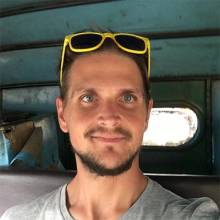Living in Minsk
Introduction: a white spot on the map
Belarus seems to be lost between mother Russia
seems to be lost between mother Russia and the dominant European Union. Since roughly 25 years, Belarus is a sovereign and since stable nation. Due to its Visa policy and political isolation, the exchange with other european countries is kept to a minimum. For my journey across Eastern Europe
and the dominant European Union. Since roughly 25 years, Belarus is a sovereign and since stable nation. Due to its Visa policy and political isolation, the exchange with other european countries is kept to a minimum. For my journey across Eastern Europe , these circumstances made it especially interesting. I have visited the country twice and spent a total of 6 weeks in Minsk. From the very first day, I have learned to love the urban capital and its friendly people.
, these circumstances made it especially interesting. I have visited the country twice and spent a total of 6 weeks in Minsk. From the very first day, I have learned to love the urban capital and its friendly people.
People: in the isolated metropolis
With 2 million inhabitants, Minsk is one of the 10 largest cities in Europe . Due to its isolation, today the vast majority of 80% are local residents with slavic roots. That is clearly visible on the streets, where foreigners other than Russians are a rarity. Like in every metropolis, people on the street seldom smile at you. However, on approach they are extraordinary helpful and friendly, as much as the language barrier allows. Especially the young and educated generation is very open and interested in the rest of the world. Not everybody knows English, but surely more than expected. Thanks to international networking communities (e.g. Couch Surfing), I have met many locals and found dear friends. This also allowed me a unique insight into local living standards.
. Due to its isolation, today the vast majority of 80% are local residents with slavic roots. That is clearly visible on the streets, where foreigners other than Russians are a rarity. Like in every metropolis, people on the street seldom smile at you. However, on approach they are extraordinary helpful and friendly, as much as the language barrier allows. Especially the young and educated generation is very open and interested in the rest of the world. Not everybody knows English, but surely more than expected. Thanks to international networking communities (e.g. Couch Surfing), I have met many locals and found dear friends. This also allowed me a unique insight into local living standards.
Bureaucracy: a bit more than complicated
Besides some technological advances, the bureaucratic administration is suffocating. I have only traveled as a private person with a car, but filled out countless forms and applications. In order to enter the country by car I needed: the right visa, a special health insurance (for return), a special car insurance (at the border) and a car declaration (temporary import). After entering the country, I had to get an electronic street toll equipment and to register my presence with the authorities. The responsible office in Minsk has unfriendly opening hours and is hidden on the backside of a large ringroad. With some little exceptions, the officers are grim and not very talkative. Dealing with authorities means a lot of guessing (interpretation) and many stamps.
Culinary: more than just potatoes
Most national dishes are made of potatoes or are marinated in eggs. Overall I like the local cuisine, since it reminds me a lot of rural Switzerland . Besides this, international specialities and food chains are already quite common in the city center. On my second visit, I took the time to shop and prepare my own food. The first hurdle was to find supermarkets, which are never openly advertised and often hidden underground. The assortment is comparable with Switzerland, you find just everything, but not in excess. In the end, I successfully managed to prepare some Swiss dishes without all the special tools nor ingredients: fondue, Chäswähe, Zopf.
. Besides this, international specialities and food chains are already quite common in the city center. On my second visit, I took the time to shop and prepare my own food. The first hurdle was to find supermarkets, which are never openly advertised and often hidden underground. The assortment is comparable with Switzerland, you find just everything, but not in excess. In the end, I successfully managed to prepare some Swiss dishes without all the special tools nor ingredients: fondue, Chäswähe, Zopf.
Culture: a rich and diverse program
In the city center, the cultural agenda is fully packed with highlights. While most productions are still state supported, only little independent offers are available. Even though the majority is in Russian language, there was plenty for me to see and do. During my visits, I enjoyed several shows at different international theatre and film festivals. At the National Bolshoi Ballet, I learned about Cipollino, a classical soviet cartoon. The nightlife scene is not as vivid as in other metropolitan cities, but people are partying equally wild. After all, there is a street art festival and several contemporary art exhibitions.
Summary: not so different after all
To a swift and superficial visitor, many peculiarities jump right into the eye. The years of isolation and separate development have certainly left some traces. While the rest of the world is becoming an undistinguishable mash, Minsk is charmingly different. So it happens, that nobody is ever crossing a red light, ever! But on a deeper consideration, there is no fundamental gap to the rest of Europe. People are having the same needs and desires. The basic principles of living together are the same and I already feel at home.




